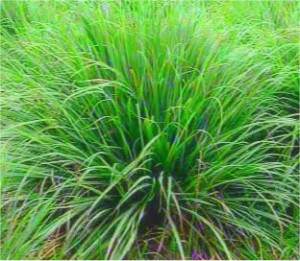Posts Tagged natural mosquito repellant
What’s Bugging You? Five Mosquito-Free Garden Plants
Summertime is the hardest time to control mosquitoes. Whether you are relaxing in your garden or near a pool, nothing is more frustrating than to have a mosquito buzzing in your ear. Spraying chemicals is one general solution most people go for, but it’s not necessarily the most safest option. To naturally prevent mosquitoes from crashing your outdoor festivities, here are some aromatic plants that can be easily grown in pots around your outdoor hangout space, or in a border around your patio.

Lemongrass This plant has a fresh lemony fragrance that is appealing to most people, but that mosquitoes absolutely hate. It is the main source of many commercial repellents and repellent lanterns, torches or candles.
Lemongrass can be grown by seed but it’s a lengthy process. If the planting area is a garden or patio, grow this grass behind small shrubs & flowers. Otherwise plant along seating areas or walkways. Better is to grow them in pots which can be brought indoors as the plant is sensitive to cold temperatures.
The quickest way to grow lemongrass is by purchasing a mature bundle of it through any preferred produce spot, Asian store or grocery store.

Marigold Commonly grown as ornamental border plants, marigolds are hardy annual plants which have a distinctive smell which mosquitoes, and some gardeners, find particularly offensive. Marigolds contain Pyrethrum, a compound used in many insect repellents.
Potted marigolds can be positioned near entrances to your home and any common mosquito entry points, such as open windows. The smell may deter mosquitoes from going past this barrier. While marigolds can be used as border plants around the patio, we do not advise putting marigolds on the patio table since the bright blooms may attract wasps.
Besides repelling mosquitoes, marigolds repel insects which prey on tomato plants, so you may want to plant a few marigolds in your tomato bed for added protection.

Ageratum Also known as Flossflowers, Ageratum emits a smell which mosquitos find particularly offensive. Ageratum secretes coumarin, which is widely used in commercial mosquito repellents.
Ageratum is a low-lying annual ornamental plant which reaches heights of 8 – 18”, and is easily recognized by its blue flowers, although there are varieties with pink, white and violet blooms.
This plant will thrive in full or partial sun and does not require rich soil. It is often displayed in rock gardens where low-lying plants are favored.
Although the leaves of Ageratum can be crushed to increase the emitted odor, it is not advisable to rub the crushed leaves directly on the skin.

Rosemary This herb is awesome for cooking, but did you know that it’s great for repelling mosquitoes, too?
Rosemary likes a Mediterranean climate, so it thrives in well draining soil and full sunlight. It’s easy to grow and doesn’t require much water. If you live in a warm climate, your rosemary will even survive the winter. If you live in a climate where the winter dips below 30 degrees F, plant your rosemary in pots so that you can bring it indoors during the winter.
Rosemary is technically a shrub and can get quite large, so trim it frequently.

Mint Why it is mosquitoes don’t like the refreshing, delicious scent of mint? It gives off a strong incense-like odor which confuses mosquitoes by masking the smell of its usual hosts.
Mint is a very hardy plant that grows rapidly in the ground or in pots. You can pick mint leaves and rub them on your skin as a mosquito repellent, or just include the plants in your landscape.
Mint leaves can be dried and used to make herbal tea. Its flowers will also attract bees and butterflies to your garden.
As a bonus, mint is also great for cooking and makes refreshing summer cocktails.
As you can see, these are just a sample of a few different plants out there that can help to keep bugs away! For more information and a list of plants that repel pesky mosquitoes contact DK Landscaping (707) 280-3632. So the next time you reach for the chemical bug spray, take a minute and think again, and choose something more natural!





